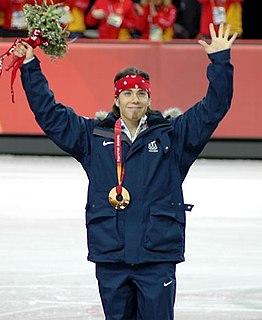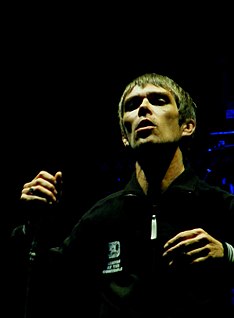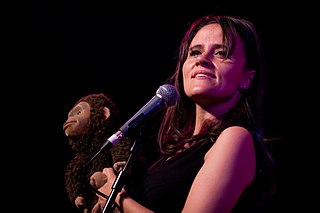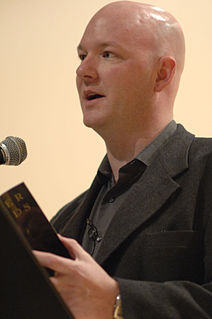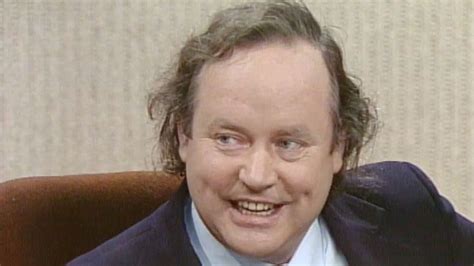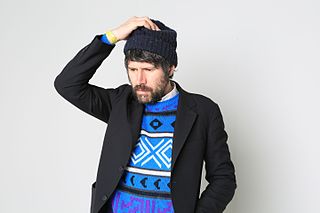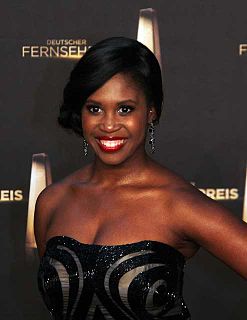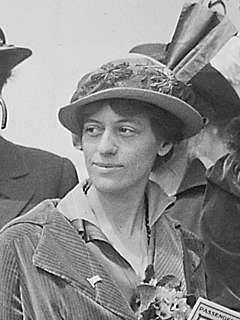Top 1200 English Poetry Quotes & Sayings - Page 20
Explore popular English Poetry quotes.
Last updated on December 18, 2024.
I feel more Irish than English. I feel freer than British, more visceral, with a love of language. Shot through with fire in some way. That's why I resist being appropriated as the current repository of Shakespeare on the planet. That would mean I'm part of the English cultural elite, and I am utterly ill-fitted to be.
I don't speak cockney and I don't pretend to come from that part of the world. For the longest time the English, like the Beatles and so on sounded American. "She loves you yeah yeah yeah!" All of the sudden you sound American. It doesn't work that way with Americans who try to sing English. It's not convincing. If I say "Footy" and "tele" and "Brissy" and "Sydney" and "Simmo" it's not convincing.
Poetry cannot be translated; and, therefore, it is the poets that preserve the languages; for we would not be at the trouble to learn a language if we could have all that is written in it just as well in a translation. But as the beauties of poetry cannot be preserved in any language except that in which it was originally written, we learn the language.
Perhaps the chief cause which has retarded the progress of poetry in America, is the want of that exclusive cultivation, which so noble a branch of literature would seem to require. Few here think of relying upon the exertion of poetic talent for a livelihood, and of making literature the profession of life. The bar or the pulpit claims the greater part of the scholar's existence, and poetry is made its pastime.
No one can threaten poetry. It's always been there, always will be. Humans need it to live: it has sustaining powers. How could we (anyone) get through adolescence without some form of song? Song is only a version of lyric poetry that is carried more by melody than by internal coherence and unity. but lyric and song - they are the same.
One of the interesting things about the history of poetry in the 16th, 17th, and 18th centuries is that people who read liked getting their information in rhyme just as much as in prose. The genre that we would think of as nonfiction often was written in verse in forms like the Georgic when people thought that one of the tasks of poetry was conveying arguments and information in a pleasant way.
I try to find a style that matches the book. In the Baroque Cycle, I got infected with the prose style of the late 17th and early 18th centuries, which is my favorite era. It's recent enough that it is easy to read - easier than Elizabethan English - but it's pre-Victorian and so doesn't have the pomposity that is often a problem with 19th-century English prose. It is earthy and direct and frequently hilarious.
I liked to write from the time I was about 12 or 13. I loved to read. And since I only spoke to my brother, I would write down my thoughts. And I think I wrote some of the worst poetry west of the Rockies. But by the time I was in my 20s, I found myself writing little essays and more poetry - writing at writing.
When we start making distinctions between soul and spirit, we're in very, very murky waters. There is the whole issue of the English language, which has a rather limited vocabulary when it comes to psychological descriptions, not to speak of spiritual descriptions. We're good mythically - the English language is superb for myth. But we're not very good for psychology or spirituality.
What le Carré is so good at is unpicking something very specific about Englishness. That is almost part of why I think he wrote the novel. You can feel le Carré's anger that someone who has had the benefits of an English education and an English upbringing is using that privilege to basically do the worst things imaginable. There is an anger in the book about that.
When I started to take literature and poetry classes, I just started to get inspired by these new incredible works of art that I had never seen or heard of before. I wrote a lot of bad high-school poetry, just like pretty much everyone did, I think, at some point. For me, the inspiration never really stopped.
Young poets worry that their experiences - whether urban or rural, immigrant or native, small town, suburb, or big city - aren't worthy of the written word. But for me the urge toward poetry, that seductive feeling of being swept away by words, was enough for me to overcome that fear that my experiences weren't worthy of poetry itself.
The word 'mundane' has come to mean 'boring' and 'dull', and it really shouldn't - it should mean the opposite. Because it comes from the latin mundus, meaning 'the world'. And the world is anything but dull: The world is wonderful. There's real poetry in the real world. Science is the poetry of reality.
Any artist, in any field, wants to press deeper, to discover further. Image and sound play are among the strongest colors available to poetry's palette. For a long time, I've wanted to invite in more strangeness, more freedom of imagination. Yet music, seeing, and meaning are also cohering disciplines. They can be stretched, and that is part of poetry's helium pleasure. But not to the point of breaking.
The judges who awarded the 1980 Commonwealth Poetry Prize to my first collection of poems, Crossing the Peninsula and Other Poems, cited with approval and with no apparent conscious irony my early poem, "No Alarms." The poem was composed probably sometime in 1974 or 1975, and it complained about the impossibility of writing poetry - of being a poet - under the conditions in which I was living then.
Poetry is, above all, a singing art of natural and magical connection because, though it is born out of one's person's solitude, it has the ability to reach out and touch in a humane and warmly illuminating way the solitude, even the loneliness, of others. That is why, to me, poetry is one of the most vital treasures that humanity possesses; it is a bridge between separated souls.
It really takes growing up to treasure the specialness of being different. Now I understand that I've gotten to enjoy things that others have not, whether it's the laughter, the poetry of my Spanish language - I love Spanish poetry, because my grandmother loved it - our food, our music. Everything about my culture has given me enormous education and joy.
People who are knowledgeable about poetry sometimes discuss it in that knowing, rather hateful way in which oenophiles talk about wine: robust, delicate, muscular. This has nothing to do with how most of us experience it, the heart coming around the corner and unexpectedly running into the mind. Of all the words that have stuck to the ribs of my soul, poetry has been the most filling.
I think the French agonise more about being French, I don't think English think about being English that much. I think the Scottish think about being Scottish and the Welsh think about being Welsh, but the English don't really care. But the French think about it all the time, it's an absolute preoccupation.
The English landscape at its finest - such as I saw this morning - possesses a quality that the landscapes of other nations, however more superficially dramatic, inevitably fail to possess. It is, I believe, a quality that will mark out the English landscape to any objective observer as the most deeply satisfying in the world, and this quality is probably best summed up by the term 'greatness.'
What I hate about kitchen-sink dramas is [this idea] that the set is real, therefore you're going to be seeing truth. You have to earn truth. Truth can't be a part of the fact that people appear to talk that way and live in that room. You're looking for the poetry in something, and I don't mean poetry in the fancy sense. Naturalism believes by just replicating a thing you give the truth, rather than earning the truth.
I read everything I could find in English - Twain, Henry James, Hemingway, really everything. And then after a while I started writing shorter pieces in English, and one of them got published in a literary magazine and that's how it got started. After that, graduate school didn't seem very important.
I'd studied English literature and American history, but the English literature, which I thought was going to be helpful to me in an immediate way, was the opposite. So I had to un-think a lot of things and move out of my own head, and I learned a lot. It was like graduate school, but an un-graduate school or an un-school.
To be blunt, I feel like lyricism in Spanish is of a different quality than English. You can get really poetic in Spanish, but I feel like if you do that in English, you risk sounding cheesy. In Spanish, it's never that. It's always this deep, passionate, beautiful imagery; it's painted different, a different color.
I sense the world might be more dreamlike, metaphorical, and poetic than we currently believe--but just as irrational as sympathetic magic when looked at in a typically scientific way. I wouldn't be surprised if poetry--poetry in the broadest sense, in the sense of a world filled with metaphor, rhyme, and recurring patterns, shapes, and designs--is how the world works. The world isn't logical, it's a song.
The biggest issue for me has been the language because I speak so much German now. I've had to focus on my English and find more words to describe what I want to say and also soften my tone. It was quite stiff from 20 years of speaking German, so when I started speaking more English, oh my god, my tongue was like: 'Argh'!
I didn't want to do a costume drama. It's a great thing to do, but I've done them, and I didn't want to do the same thing again. Of course, costume dramas can be from all different eras, but at the time, I just felt very sure that I didn't want to be boxed in as an English actress. I wanted to be an actress, rather than an English actress.
My favourite film-maker west of the English Channel is not English - but to me doesn't seem American either - David Lynch - a curious American-European film-maker. He has - against odds - achieved what we want to achieve here. He takes great risks with a strong personal voice and adequate funds and space to exercise it. I thought Blue Velvet was a masterpiece.
English audiences of working people are like an instrument that responds to the player. Thought ripples up and down them, and if in some heart the speaker strikes a dissonance there is a swift answer. Always the voice speaks from gallery or pit, the terrible voice which detaches itself in every English crowd, full of caustic wit, full of irony or, maybe, approval.
The embrace of present and past time, in which English antiquarianism becomes a form of alchemy, engenders a strange timelessness. It is as if the little bird which flew through the Anglo-Saxon banqueting hall, in Bede's Historia Ecclesiastica Gentis Anglorum, gained the outer air and became the lark ascending in Vaughan Williams's orchestral setting. The unbroken chain is that of English music itself.
I think that if you are sticking to the text, essentially, you're not trying to write your own version of it. I mean, of course, it is your own version of it. And every translator would probably have a different version. But I think that that's what keeps the writers from being individual in English. They may be my English, but I don't think that Ferrante sounds like Levi.
I realized over the years if I'm writing about humor, irony, satire, I much prefer to do that in English. And if there is sorrow, melancholy, longing, I much prefer to do that in Turkish. Each language has its own strength to me, and I feel connected and attached to both Turkish and English. I dream in more than one language.
I do believe that one's writing life needs to be kept separate from Po-Biz. Personally, I deal with this by not attending too many poetry readings, primarily reading dead poets or poems in translation, reading Poets & Writers only once for grant/contest information before I quickly dispose of it, and not reading Poetry Daily. Ever.
I'll say that this is probably the best time for poetry since the T'ang dynasty. All the rest of the world is going to school on American poetry in the twentieth century, from Ezra Pound to W. S. Merwin, and for very good reason. We have soaked up influence in the last century like a sponge. It's cross-pollination, first law of biology, that the more variety you have the more health you have.
The sign was spray-painted in Arabic and English, probably from some attempt by the farmer to sell his wares in the market. The English read: Dates-best price. Cold Bebsi. "Bebsi?" I asked. "Pepsi," Walt said. "I read about it on the Internet. There's no 'p' in Arabic. Everyone here calls the soda Bebsi." "So you have to have Bebsi with your bizza?" "Brobably.
The only reason I acted in school was because of the community. I was in the chorus of every play and was never the lead other than one time, but to me it was about the community. I was an English major and my whole goal was to be an English teacher and was lucky enough to get into the playwriting group. The whole experience I had at Brown was eye opening and the most mind-bending experience.
I didn't know how this would play out when I was a kid. I knew I wanted to play ball, be a paleontologist, and write poetry. I thought, 'Heck, where will I find the time? Well, football comes first, and I'll just find some time for poetry, and paleontology can come at the end.' I made this plan at 14, and dang, it's all coming together.
Although I write in English, and despite the fact that I'm from America, I consider myself an Armenian writer. The words I use are in English, the surroundings I write about are American, but the soul, which makes me write, is Armenian. This means I am an Armenian writer and deeply love the honor of being a part of the family of Armenian wrtiters.
It is hard to compare cultures without overgeneralizing, but I think a lot of American poetry has an assertiveness - an upbeat quality - that's less typical of Canadian poetry. Of course there are poets in both countries to whom that generalization does not apply. Speaking broadly, I'd describe Canadians as being a bit more reserved than Americans. Not less opinionated - just less direct.
A forest," William said, his expression distant. "Where the ground is dry soil and stone. Where tall trees grow and centuries of autumn carpet their roots. Where the wind smells of game and wildflowers." "Why, that was lovely, Lord Bill. Do you ever write poetry? Something for your blueblood lady?" "No." "She doesn't like poetry?" "Leave it." Hehe. "Oh, so you have a lady. How interes--
The perils, rewards, punishments, and fulfillments of an adventure must be real, or the adventure is only a shifting and heartless nightmare. If I bet I must be made to pay, or there is no poetry in betting. If I challenge I must be made to fight, or there is no poetry in challenging. If I vow to be faithful I must be cursed when I am unfaithful, or there is no fun vowing.
I'm finding that writing poetry is strengthening my songwriting, because you're learning to make a piece of writing work on a page with nothing else. I was also finding within poetry I felt a lot more free to write about very different matters, to write about social issues or things that are going on around me.
My mother teaches high school English, and she's an artist and a poet and a sculptor, she's published twelve poetry books. I grew up in a household in Venezuela with living, breathing art installations that were the way that she used to express herself, a highly creative environment where ideas were celebrated, where artistic expression was celebrated. Seeing her as somebody who was always able to have a creative output - if she felt sad, she wrote a poem, if she felt happy, she made a sculpture - I think for me, there was an early interest in finding outlets for my passions.


